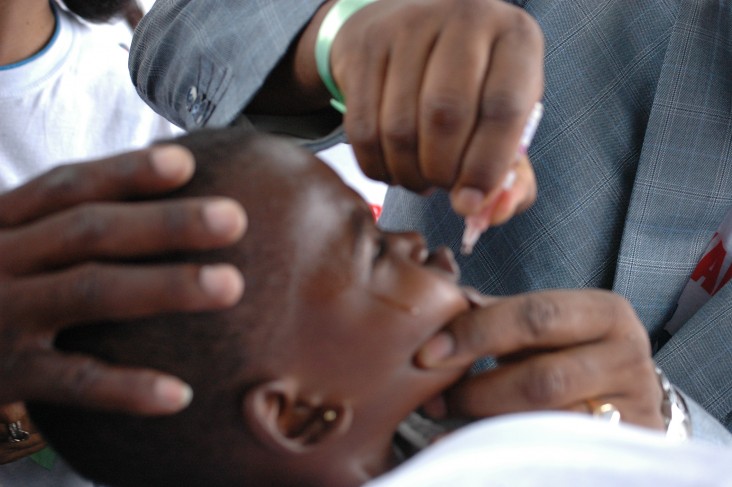
During the Tenth Annual International Congress of Angolan Physicians in Luanda on January 26 and 27, the Minister of Health, José Van-Dunem, announced that Angola remained a polio-free nation in 2014. Due to robust national campaigns and routine immunization days, the country exceeded an 80% child immunization rate. The Minister also declared that maternal health indicators improved overall as women now have increased access to improved prenatal care, malaria treatment and insecticide-treated mosquito nets. Additionally, as a result of opening several provincial hospitals in 2014, there was an increase in services for treating and monitoring HIV/AIDS and the optimization and expansion of the vertical prevention program.
Since 2007, USAID has supported the Ministry of Health to immunize an estimated nine million children annually through national Polio campaigns and routine immunization days. USAID funded the World Health Organization to increase polio surveillance and funded the Core Group to enhance independent monitoring and evaluation of the government's polio program. USAID also contributed to improving maternal health indicators by contributing to an increased contraceptive prevalence rate through the use social marketing to increase the demand and use of family planning commodities and services. The increased use of family planning commodities and services lead to reduction in the risk of sexually transmitted infections, including HIV/AIDS, and unplanned pregnancies. USAID also supports the MOH in implementing its National Program for Malaria Control priority of reducing child mortality by preventing and treating malaria during pregnancy through purchasing and distributing insecticide treated bed nets, spraying homes with insecticide, promoting the use of malaria medicines, and building capacity of MOH staff.







Comment
Make a general inquiry or suggest an improvement.